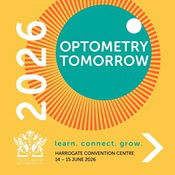Professional Matters Optometry & Dispensing
Waiting Lists in NHS services leading to sight loss
NHS patient backlogs are leading to life-changing sight loss
Association of Optometrists launches new campaign calling on the Government to prevent a health emergency by ensuring more care is commissioned in community optometry
The Association of Optometrists (AOP) is launching a new national campaign following a Freedom of Information request which reveals patients have lost their sight due to NHS backlogs.
Clinicians have reported more than 200 cases of people losing their vision due to treatment delays since 2019, with hundreds more unreported cases suspected.
The AOP is calling on the Government to commit to a national eye health strategy that enables more patients to access the care they need quickly and locally.
Currently 628,502 people are awaiting ophthalmology appointments in England alone – the second largest NHS backlog, equating to one in every 11 patients on an NHS waiting list. Furthermore, 27,260 of those have been waiting a year or more.
In response to the Freedom of Information NHS England revealed that there have been 551 reports to the National Reporting and Incident system in relation to sight loss due to delayed appointments since 2019. Of those reports, 99 incidents involved “severe harm” and 120 incidents caused “moderate harm”.
One incident report described a patient with wet age-related macular degeneration (AMD) who lost vision in their left eye after their injection treatment was delayed. The patient was meant to have monthly injections but presented at clinic after three months had passed without an appointment.
The findings reinforce fears expressed by members of the AOP, with nearly half (43%) raising serious concerns over the number of patients they are seeing who could lose sight unnecessarily as a result long NHS waiting lists and cancelled appointments.
An additional poll of 498 Macular Society members reveals:
- Nearly six in 10 (57%) have experienced a delay whilst waiting for an NHS appointment and/or treatment
- Nearly half (47%) have experienced a loss or decline in vision during this time
- At the time of the survey one in 10 patients had waited more than a year to be seen or were still waiting
- Four in 10 patients with macular eye conditions who have experienced NHS delays in the past two years fear losing their sight, with 21% struggling with day-to-day tasks
- 30% feel abandoned by the NHS or authorities
Chief Executive of eye charity, Macular Society, Cathy Yelf, says they are receiving dozens of phone calls each month from people who are worried that they are going to lose vision because of delays.
Ms Yelf said: “People are terrified at the prospect of losing vision. The ones who contact us are the ones who are actively trying to solve the problem. We have no idea how many people sit at home, quietly losing their vision and not making a fuss about it. It is a tragedy that people lose sight when there is a treatment that will help keep their vision for longer, but it is not given in time.
“If the NHS can’t cope with the number of patients then they should be assessing the risk of each patient, and find an alternative place for their treatment. This can’t wait, this is an urgent situation and people will lose their vision if they are not treated properly.”
Chief Executive of the AOP, Adam Sampson said: “We are facing a health emergency. Hospitals are overrun, and the NHS is collapsing under patient need. There are good treatments available for common age-related eye conditions like macular degeneration but many Hospital Trusts simply do not have the capacity to deliver services. Optometry is ideally placed to take away some of that burden – optometrists are already qualified to provide many of the extended services needed and are available on every high street, so patients can be treated closer to home.
“It’s incomprehensible and absolutely tragic that patients are waiting, losing their vision, in many parts of the country because of the way eye healthcare is commissioned. With a national strategy for eye care we can take a critical stride towards improving care and outcomes for patients.”
The AOP is encouraging the optometry profession, and members of the public, to contact their constituency MP to support the demand for change, with more information available at www.aop.org.uk/sightwontwait
See Doug Perkins response here























